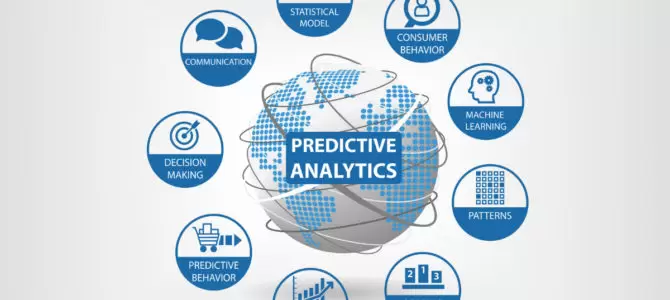Predictive analytics is the usage of machine learning, statistical algorithms, and data for identifying the possibility of future results depending on historical data. The aim is going beyond understanding what has happened to offer the best evaluation of what will happen in the future.
History of Predictive Analytics and present advances:
Albeit predictive analytics has been around for so many decades, it’s the technology whose time has finally come. More and more companies are shifting to predictive analytics for maximizing their bottom line as well as competitive benefit. Then why now?
- Easier-to-use software
- Cheaper, quicker computers
- More difficult financial conditions and a requirement for competitive distinction
- Increasing volumes and kinds of data, and more interest in utilising data for producing precious insights.
With easy-to-use and interactive software becoming more accepted, predictive analytics is no more only the domain of statisticians and mathematicians. Line-of-business experts and business analysts are utilising these technologies also.
The Importance of Predictive Analytics:
Some of the most common uses, as well as the importance of Predictive analytics, include:
- Optimizing marketing campaigns:
Predictive analytics are utilised for deciding client responses or buys, and also promote cross-sell opportunities. Predictive models help businesses retain, attract, and develop their most potential clients. - Fraud detection:
Mixing different analytical methods can prevent criminal behaviour and enhance pattern detection. High-performance behavioral analytics tests all functions on a network in real-time for spotting abnormalities which may indicate zero-day vulnerabilities, fraud, and advanced persistent threats, as cyber security becomes a developing concern. - Minimizing risk:
Credit scores are utilised for evaluating a buyer’s possibility of default for buys and are a popular example of predictive analytics. A credit score is a number created by a predictive model which includes all data appropriate for the creditworthiness of a person. Other risk-related usages incorporate insurance claims as well as collections. - Enhancing functions:
Many organisations utilise predictive models for forecasting inventory and managing resources. Airlines utilise predictive analytics for setting ticket prices. Hotels try to forecast the number of guests for every given night to increase occupancy and maximize revenue. Predictive analytics allows companies to operate more effectively.
So, you can see that with predictive analytics, you can go more than learning what happened and why to finding insights regarding the future. So, learn how this analytics shapes our world.

